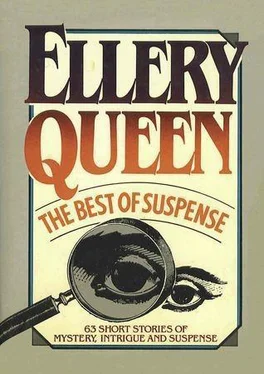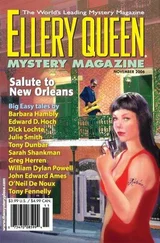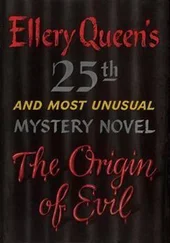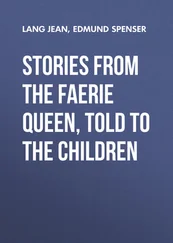“You in the best houses,” I said, “myself at the second best.”
“Comparisons are invidious,” said Raffles. “Accept all the invitations you get. I shall do the same. And we owe no duty to Pollexfen, so there’s no need to make it a secret, in mixed company, that we’ve parted from him, and the reason for it, and are trying to get out the magazine by using our private means. Now, let’s call Mirabel in and see if she’s prepared to stand by us in this crisis.”
One flash from Mirabel’s eyes, when she heard that we were now to go it alone, made it plain where she stood. So, for better or worse, I rented a bleak little office for us just off Drury Lane.
Money being tight, I was glad enough to dine out frequently, and it seemed to me, when I recounted our trouble with Lord Pollexfen, that the mirth of the men at the table was offensively raucous, but that some of the ladies looked at me sympathetically as they withdrew to the drawing-room and whatever ladies talk about there, and left us men to our port.
My leg was pulled unmercifully by some of these hearties, but my real worry was the Master Printer, Mr. McWhirter. We were in a galling position. We had a fine magazine made up and ready to print, but there was not a hope of a single copy coming off the presses of that canny Scotsman until his bill for services to date was paid.
“We shall have to call on somebody, Bunny,” Raffles said.
“Who, for instance?” I asked gloomily.
“A certain barrister who’s a member of one of my clubs, Bunny. His name’s Sir Geoffrey Cullimore, K.C. He’s a blustering brute who makes at least fifty thousand a year by reducing men to jelly in the witness-box, and women to tears.”
“Then what’s the use of calling on a man like that?” I said.
Raffles gave me a wicked look. “His wife has a valuable necklace, Bunny.”
My heart lurched.
The Cullimore mansion was in Eaton Square, and Raffles, masked, shinned up the porch pillar to pay his call, by way of the window of the master bedroom, at two A.M. on a moonless night. I myself waited below on the porch ready to reel out, in evening-dress and opera hat, and, enacting the role of a gentleman who had dined too extensively, confuse with maudlin inquiries the bobby on the beat if he should make an inopportune appearance.
Fortunately, he did not show up at all, and when Raffles rejoined me, removing his mask, he had the necklace-case in his pocket.
“It’s locked,” he told me. “I’ll pick the lock at Kern’s place.”
Ivor Kern, the fence we did business with, a young-old man with a perpetual, cynical half-smile, had an antique shop in King’s Road, which was not far off. Under the flaring gaslight in Kern’s cluttered sitting-room over the shop, Raffles picked the lock of the necklace-case and threw it open.
It was empty.
Raffles was as shocked as I was, but Kern’s smirk widened.
“ ‘Emmeline Cullimore,’ ” he said, reading the name embossed on the leather necklace-case. “Well, as it happens, I can tell you where that necklace is. It’s just across the road in the very secure safe of a pawnbroker friend of mine.”
“How d’you know?” Raffles said grimly.
“Because jewellery offered to him in pledge,” Kern said, “he usually brings over to me for an expert valuation before making an advance. A lady wanted to pledge a necklace with him this morning. She wore a veil and said her name was Doris Stevens, but he recognized her because she lives nearby, in Eaton Square. She was Lady Cullimore. I valued the necklace at two-thousand-and-seventy pounds. He gives ten per cent of value on pledges, so he let her have two-hundred-and-seven pounds on it. Bad luck, Raffles — you can’t win every time.”
We parted in silence, I to my flat in Mount Street, Raffles to his set of rooms in The Albany, just off Piccadilly.
To my surprise, he showed up at the office in Drury Lane next morning, and seemed to be in very good spirits.
“I have news for you, Bunny,” he said, as he poured himself a sherry-and-bitters. “I dropped in at the bank on my way here. Yesterday afternoon, just before closing-time, a lady made a deposit to the credit of A. J. Raffles’ Magazine. She wore a veil, and signed the paying-in slip in the name of Doris Stevens. It was a cash deposit, in five-pound notes, with two sovereigns, of exactly two-hundred-and-seven pounds.”
“Good God!” I said. “What d’you make of this, Raffles?”
His grey eyes danced. “One wonders, Bunny.” He took out his wallet. “I cashed a cheque for a hundred for incidental expenses — to keep our announcement running in the Personal columns, and to pay Mirabel’s salary, and so on, with a little ready money for ourselves. We shan’t need much, as we’re dining out so frequently nowadays.”
I accepted my share, and was glad of it. But the McWhirter problem remained. He was badgering for his bill to be paid, and it obviously was quite useless to offer him, on account, the mere £107 remaining to the magazine’s credit, and expect him to print thousands of copies of our first issue on the strength of it.
I pointed this out to Raffles one morning about a week after the curious incident of the veiled lady.
He nodded regretfully. “We’re stymied, Bunny. The only thing we can do is go and see Lord Pollexfen. It’s no use prevaricating. We must be realistic. Come on, let’s go and take our medicine.”
“A damned bitter draught,” I said, as we put on our hats and walked round to Covent Garden, ablaze with the flower-barrows in the lovely sunshine. “If he does agree to take over the magazine again, it’ll be on his conditions — no female opinion, Mirabel to be sacked.”
Significantly, we were kept waiting for some time in the antechamber of the Pollexfen Press Building before we were admitted to Lord Pollexfen’s sanctum, which was almost as large as the Long Room at Lord’s.
The peer, without rising from his massive desk or inviting us to be seated, screwed his monocle into his eye.
“Well?” he said haughtily.
“I hear rumours in Fleet Street,” Raffles said, “that you’re going ahead with your plans for a sports magazine.”
“I informed you of my intention of doing so. I’ve found a suitable name for its bannerhead. What I say I will do, Raffles, I do.”
“Frankly, Pollexfen,” Raffles said, “we’ve run into certain difficulties — McWhirter and one thing and another. We’ve found the business side of producing a magazine a considerable encroachment on our time and — candidly — on our personal resources.”
“I warned you,” the peer said coldly. “Publishing is not for amateurs. If you’re here to seek a return to our former relationship, I’m not interested. My alternative plans are afoot. Now—”
“You expressed some interest,” Raffles said quickly, “in the literary material I obtained from personal acquaintances — Mr. John L. Sullivan — Prince Ranjisinjhi—”
The peer, his monocle fixedly regarding Raffles, withdrew his hand slowly from the bell on his desk.
“I could, I think,” Raffles said, “persuade those gentlemen, as a personal favour to me, to allow the transfer of their material to your own magazine, if you — oh, the devil! Manders and I aren’t business men. We’ve sunk more than we can afford into the magazine. If you’d care to consider acquiring its literary assets for a reasonable sum—”
“What d’you call a reasonable sum?” snapped the peer.
“Well, if you’d take over McWhirter’s bill to date,” Raffles said, “and — well, we’d like to get back a crumb or two of what we’ve spent. We could, of course, go to the City for finance — I have friends there — if we decide we must go on. But—”
Читать дальше












